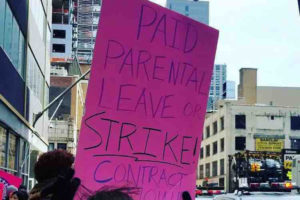January 20, 2011; Source: GiveWell | A blog post from GiveWell yesterday provided a counterintuitive summary of research conducted by two Harvard University researchers on the benefits – or lack of benefits or even harms – of providing low-income people free legal services in civil matters. The study focused on the Harvard Legal Aid Bureau’s services to people seeking help to get unemployment benefits.
The study concluded that “an offer of services had no statistically significant effect on the likelihood of an individual’s receiving government benefits,” and in fact, the population offered legal help “received services more than 13 days later than the control group.”
GiveWell notes some of the limitations of the study. It used “an intent-to-treat” methodology, that is, the offer of services rather than the provision of services, though more than 90 percent of those offered services actually received them. It also noted in the study that HLAB services are delivered largely by Harvard law students as opposed to experienced lawyers. Students’ limited skills, class schedules or part-time HLAB commitments might have contributed to the delays.
Sign up for our free newsletters
Subscribe to NPQ's newsletters to have our top stories delivered directly to your inbox.
By signing up, you agree to our privacy policy and terms of use, and to receive messages from NPQ and our partners.
The study is worth reading in its entirety, particularly since the authors straightforwardly warn against over- and under-generalizing the findings. Having worked with numerous Legal Services operations, though helping clients on housing issues rather than unemployment benefits, this writer has seen huge benefits to clients from the provision of low- or no-cost legal services in civil matters.
On housing issues, Legal Services attorneys – professionally trained – have helped displaced families obtain relocation benefits and right-to-return commitments that they would have never been able to get directly from the public redevelopment agencies that were taking their homes. They have helped protect tenants from unwarranted evictions in subsidized Section 8 and public housing projects.
The results aren’t measurable in whether a benefit the clients needed might have been delayed, but whether the legal rights and protections of clients would be upheld. Perhaps the fact that HLAB students, by definition, are not as fully trained as Legal Services attorneys is an issue, since some Legal Services attorneys are tremendous, dogged, indefatigable advocates for their clients and communities, and perhaps there are differences given the study focus on unemployment benefits, but we would caution funders and policy-makers not to over read the conclusions of this study.—Rick Cohen












